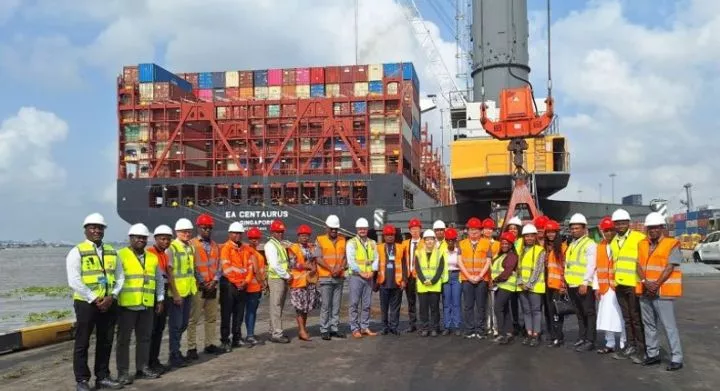
The Nigerian Ports Authority (NPA) has temporarily suspended the release of cleared cargoes from the Apapa Port Complex (APC) due to congestion issues currently affecting the port. This development is expected to impact logistics, the supply chain, and the overall efficiency of cargo movement in and out of one of Nigeria's busiest ports.
In an official notice addressed to the trucking sector of the maritime industry, Truck Transit Parks (TTP)-the traffic management firm responsible for coordinating the movement of trucks along the Apapa port corridor-announced the halt in truck releases from the Lagos Port Complex's pre-gate area. The notice attributed the decision to the ongoing severe congestion and explained that the port's management is closely monitoring the situation to determine when normal operations can resume.
Part of the notice stated: "Please be informed that there is a temporary hold on truck release from the Lagos Port Complex pre-gates due to ongoing congestion. We are closely monitoring the situation and will relax the hold as soon as conditions improve."
The congestion created a bottleneck in the port, delaying the flow of goods and hampering both local and international trade activities.
This has caused concerns across the logistics and transportation sectors, with various stakeholders raising alarms about the economic impact if the congestion persists.
In response to the situation, Mr. Sani Mohammed, an official of the Association of Maritime Transport Owners (AMATO), attributed the congestion to the inefficiency of terminal operators at the port. According to him, the port's operators have failed to manage the inflow and outflow of cargo effectively, which has compounded the congestion problem.
Mohammed expressed frustration over the inefficiency of these terminal operators, stating: "What we are experiencing is a result of low efficiency by the terminal operators. They have not been able to facilitate the smooth movement of cargo, and yet, they will still charge demurrage fees for the delays caused by their inefficiency."
















Comments